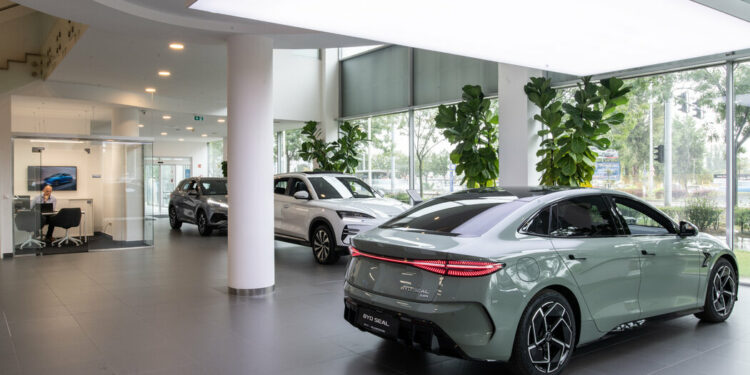The European Union voted on Friday to impose higher tariffs on electric vehicles imported from China, risking tensions with an important trading partner in an effort to protect an industry crucial to Europe’s economy.
The decision affects billions of dollars of trade between two of the world’s biggest economic powers. The move also reveals how the European Union is struggling to reconcile the conflicting interests of its members, some of whom see China as an essential partner while others view it as a dangerous competitor.
The tariffs are much lower than the 100 percent duties imposed by the United States and Canada, but analysts said they reflected Europe’s willingness to build bridges with Washington by taking a tougher stance on Beijing, but without shutting out China entirely.
The vote sends “a signal that there’s an emerging consensus in Europe that stronger pushback against China on the economic front is needed,” said Noah Barkin, a senior fellow at the German Marshall Fund who specializes in Europe’s relationship with China.
Still, the decision exposed the divisions among the 27 E.U. member states over how they should handle the issue with China. Five countries voted to block the tariffs, while 12 abstained.
The tariffs, which take effect on Oct. 31 and will last for five years, go as high as 45 percent. But both European and Chinese officials have said they remain in negotiations to reach an agreement that would address Brussels’s concerns about unfair advantages enjoyed by automakers in China.
Thank you for your patience while we verify access. If you are in Reader mode please exit and log into your Times account, or subscribe for all of The Times.
Thank you for your patience while we verify access.
Already a subscriber? Log in.
Want all of The Times? Subscribe.
Source link : https://www.nytimes.com/2024/10/04/business/europe-china-electric-vehicles-tariffs.html
Author :
Publish date : 2024-10-04 10:07:19
Copyright for syndicated content belongs to the linked Source.


